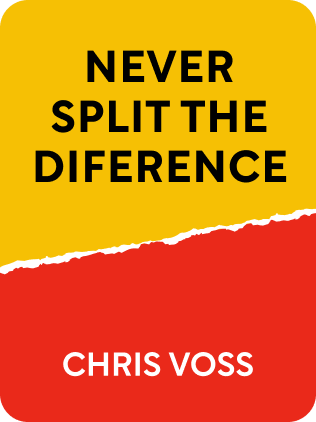

This article is an excerpt from the Shortform book guide to "Never Split the Difference" by Chris Voss and Tahl Raz. Shortform has the world's best summaries and analyses of books you should be reading.
Like this article? Sign up for a free trial here .
What is a win-win negotiation? Why does this idea have so much currency? What are the advantages and disadvantages of the win-win approach to negotiation?
A win-win negotiation is a negotiation based in compromise. It stipulates that negotiating counterparts should look for common ground and seek terms that they can both live with.
Keep reading for more about win-win negotiation.
The Perils of Win-Win Negotiation
The win-win negotiation approach is premised on the idea that the ultimate outcome of any negotiation is to settle in the middle or “split the difference.”
We’re taught from an early age to compromise, meet in the middle, split the difference. Compromise helps us avoid the hard work of actual negotiating. It’s much easier just to split the difference than it is to really put in the effort to build a deep connection with the other person. Instead of figuring out what makes someone tick and using it to your advantage (which we’ll explore below), you can just accept half-a-loaf and move on.
But it’s more than that: win-win negotiation doesn’t just diminish the potential gains you could make, it can also lead to catastrophic losses. Think about a kidnapper who demands a $150,000 ransom for a hostage. Win-win negotiators would tell you to offer them $75,000 and hope that the kidnapper will just accept this and release the hostage. Of course, this would probably lead to the worst-case scenario, where you pay the money and the hostage isn’t released!
Obviously, this is not a tenable strategy. And the reason it fails is because some win-win negotiations are actually win-lose. In a win-lose, a win for the other side can only mean a loss for you. In these scenarios, the win-win negotiation approach satisfies no one and often leads to disaster.
The lesson is to lean in to the difficult work of negotiating. Find out what’s really driving your counterpart: what do they want to achieve, what pressures are they facing, what do they consider to be fair or unfair? These aren’t easy questions to answer, but they will ultimately yield better results for you. The best solutions are always the product of risk, annoyance, confusion and conflict.
Making Deadlines Work
Deadlines are always a source of anxiety in negotiations. We feel that we will lose out on an opportunity if we don’t make a deal right away, or that these terms will never be available again.
Your counterpart will use deadlines to put pressure on you to make a deal. This is the essence of high-pressure sales tactics, when a salesperson tells you that a deal is for “a limited-time only” or that a product is “only available on a first-come, first-serve basis.” These deadlines compel you to suspend your rational judgement, ignore the pros and cons, brush aside questions of whether or not you even need the item in question, and, ultimately, rush headlong into a bad decision.
But deadlines can work both ways. You can also use them to your advantage, whether you’re facing one externally or imposing one on someone else.
Facing Your Deadline
Here’s the thing about deadlines: they’re mostly fake. Deadlines are almost always arbitrary, flexible, and rarely trigger the dreaded consequences people fear they will. What they really exist to do is force people to compromise with themselves in order to meet them.
A lot of old-school negotiation theories tell you to never reveal your deadline, otherwise you’ll give the other side an opportunity to run out the clock and delay discussion of the issues until the very end: putting you under pressure to make a deal on their terms.
This is also wrong. You want to reveal your deadline to your counterpart. Doing so reduces the risk of impasse and forces the other side to get down to negotiating immediately.
As long as you’re committed to not negotiating against yourself to meet the deadline, this can work to your advantage: you can flip the table and force them to accommodate your deadline. Remember, a missed deal for you is also a missed deal for them. There’s no reason for you to be the only one feeling the pressure.
Facing Their Deadline
As a good negotiator, you also need to use their deadline to your advantage. For example, car dealers are known for making generous offers when their reviews are up at the end of the month. They have to meet sales quotas, so they have a powerful incentive to close the deal on your terms.

———End of Preview———
Like what you just read? Read the rest of the world's best book summary and analysis of Chris Voss and Tahl Raz's "Never Split the Difference" at Shortform .
Here's what you'll find in our full Never Split the Difference summary :
- Lessons learned from years as an FBI hostage negotiator
- Why negotiation is about emotional appeals, not rational ones
- The 5 methods for tactical empathy, which gets you what you want by focusing on the other person's feelings






